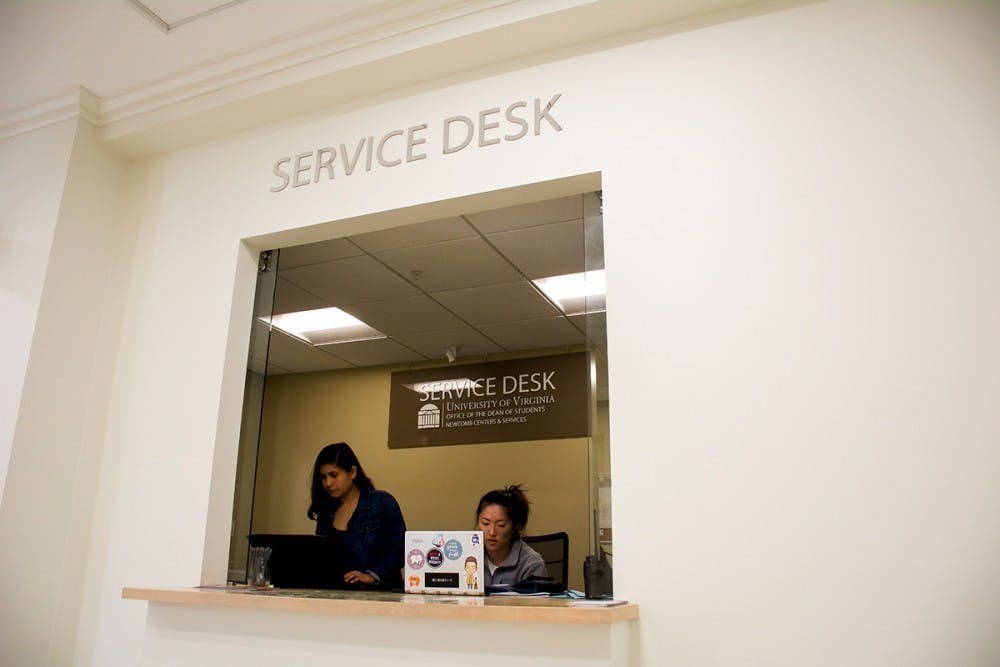The federal work-study program seems like the classic American bootstraps approach to funding higher education –– pay your way through college with your own hard work. While the money partially comes from the government, it still isn’t one of the dreaded handouts complained about by so many of the older generation. However, the program itself falls short of this outdated ideal. In many instances, finding a job through work-study might become a significant challenge for incoming students struggling to pay tuition. In order for the program to be useful to all students, the University must guarantee employment to those eligible.
In an age of obscenely high tuition rates among American colleges and universities compared to students’ parents and grandparents, working a minimum wage job to pay for higher education is no longer feasible for most students. This is especially true for the vast amount of students who do not have any funds saved –– a whopping 35 percent of American parents have not put any money away for their children’s education. With the economy currently in recession due to the COVID-19 pandemic, even finding those minimum wage jobs is becoming more and more difficult and even unsafe for students. All these factors have created a cripplingly difficult financial situation surrounding the entire concept of attending college for many students.
Enter the work-study. Given all this financial turmoil, any student would be excited to be granted any financial aid. The average work-study at the University doesn’t provide an extremely large amount, usually $3,000-4,000. At most, this is about 10 percent of tuition and fees at the University. However, it’s money a student would have coming into their pockets –– even if it will go out almost as quickly as they can earn it.
Unfortunately, being granted a work-study doesn’t necessarily guarantee that a student will find work. At the University, students who are looking for on-Grounds or affiliated jobs go through Handshake, an online recruiting platform for students. Work-study students might be considered differently than other students for some jobs, but still they must compete with other work-study students who might be older with better resumes and more connections. Finding a work-study job as a first-year student can be increasingly challenging. First-years are still adjusting to living at school and potentially trying to understand how college classes work for the first time in their lives, not to mention attempting to make friends and join extracurriculars. Finding a work-study job can easily take a backseat to classes for many first-years –– especially when many handshake employers do not even send rejection letters if they decide not to grant the student an interview.
With the rising tuition rates and economic instability of the nation due to the COVID-19 pandemic, work-study students are more pressed than ever to find jobs to help make their way through college. However, if a job isn’t guaranteed with one’s work-study, the entire point of the work-study seems to unravel. The University’s student population is generally fairly wealthy, with a median family income of $155,000 a year. This makes being a student at the University increasingly more difficult and competitive as a poorer student. Your peers don’t have to worry about finding and working a job to pay for school, and are able to put more of their time into classes and extracurriculars.
Now, that’s not to say it is impossible for students to work through college. In fact, it’s incredibly common. However, the added stress of finding a job for one’s work-study fails to make sense if the entire purpose of a work-study is to assist students who need that financial aid. Work-study jobs should be guaranteed to students who qualify for them. In addition, when students are granted their work-study, they’re barely given any instructions from the University about finding a job. They generally must contact Student Financial Services directly to get any information regarding the job application process. This just makes everything about the work-study program more convoluted for students, especially ones who might have never worked before.
Overall, not guaranteeing work for work-study students defeats the purpose of the program. During the current recession and uncertainty of the COVID-19 era, many American families are struggling to afford college more than ever. The federal work-study program can be a way to relieve some of the pressure for students and families, but only if the program actually provides what it advertises — work for college students.
Allison Haszard is a Viewpoint Writer for The Cavalier Daily. She can be reached at opinion@cavalierdaily.com.
The opinions expressed in this column are not necessarily those of The Cavalier Daily. Columns represent the views of the authors alone.







